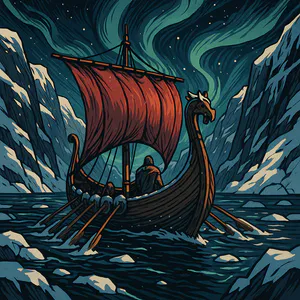Generate Icelandic names
More Real Name Generators- <% result.name %>
Discover all Story Shack apps
Discover the Essence of Icelandic Names
Icelandic names are steeped in rich history and culture, reflecting the land's unique heritage. Use these questions to inspire your exploration of names that resonate with the beauty and mystique of Iceland.
- What elements of nature do you want your name to embody, such as mountains, rivers, or the northern lights?
- What historical figures or myths from Icelandic lore inspire you to create a name?
- How do you envision the personality traits that your name should represent?
- What connections to Icelandic geography or wildlife do you want your name to reflect?
- What emotions or stories do you wish your name to evoke in those who hear it?
Frequently Asked Questions
Here are some common questions about the Icelandic Name Generator and how it can help you find the perfect name.
How does the Icelandic Name Generator work?
It pulls from a rich database of Icelandic names and their meanings to generate unique name combinations with each click.
Can I specify the type of name I want?
Currently, you can't specify; however, you can regenerate until you find a name that captures your vision.
Are the names unique?
The names are randomly generated; with unlimited clicks, you'll uncover a diverse array of options, though some may be similar.
How many names can I generate?
You can generate an unlimited number of names; simply click 'Generate' as many times as you like.
How do I save my favorite names?
You can copy a name instantly by clicking on it, or use the heart icon to save it for later reference.
What are good Icelandic names?
There's thousands of random Icelandic names in this generator. Here are some samples to start:
- Hólmgrímur Stefnisson
- Issi Rúriksson
- Sváfnir Skorrason
- Vindar Vöggsson
- Ívar Geraldsson
- Sólvör Birnisdóttir
- Níní Austarsdóttir
- Bassí Brynjarsdóttir
- Bjarnhildur Júnísdóttir
- Sylgja Randversdóttir
About the creator
All idea generators and writing tools on The Story Shack are carefully crafted by storyteller and developer Martin Hooijmans. During the day I work on tech solutions. In my free hours I love diving into stories, be it reading, writing, gaming, roleplaying, you name it, I probably enjoy it. The Story Shack is my way of giving back to the global storytelling community. It's a huge creative outlet where I love bringing my ideas to life. Thanks for coming by, and if you enjoyed this tool, make sure you check out a few more!


























































